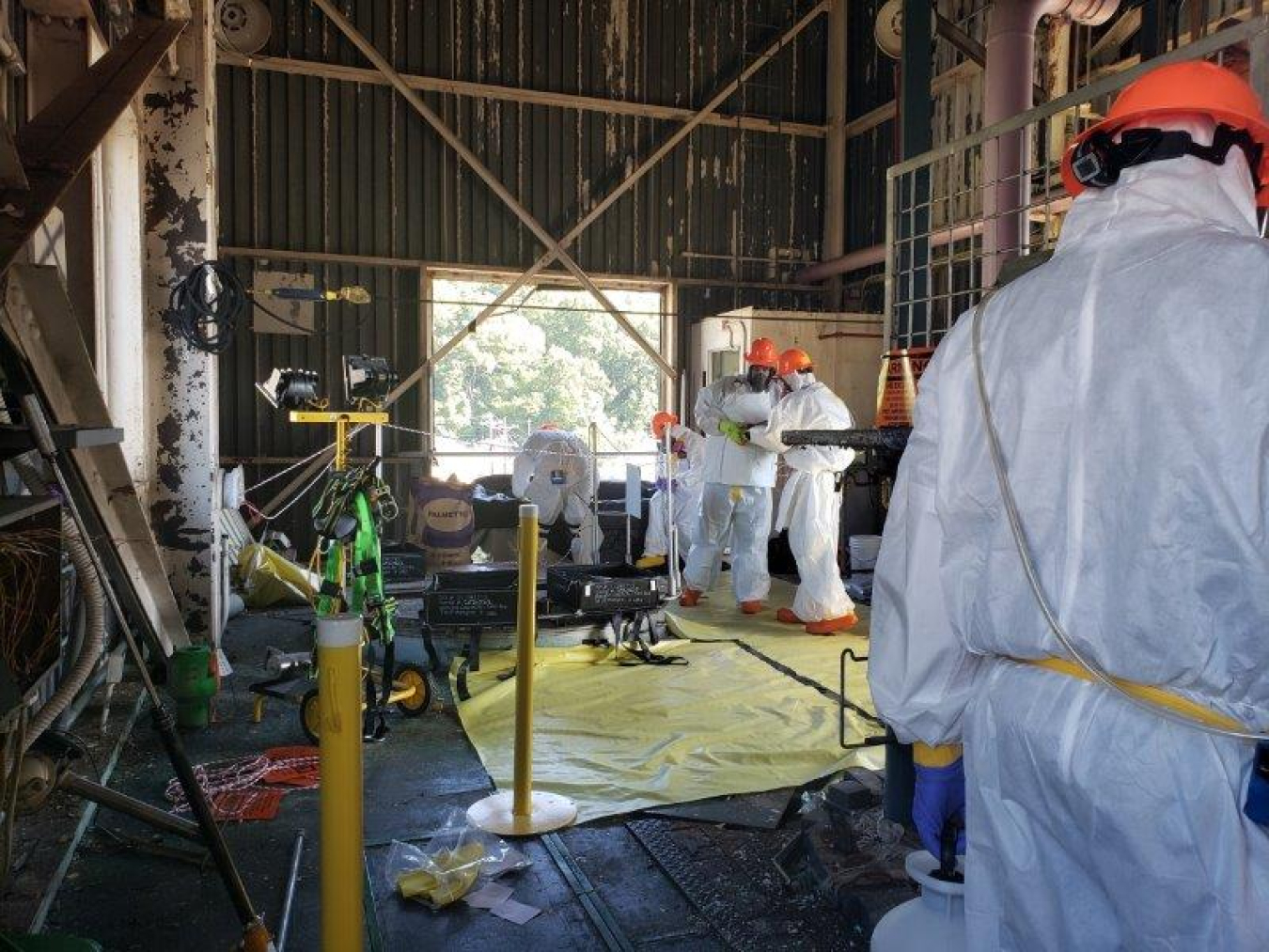The Oak Ridge Office of Environmental Management (OREM) and its cleanup contractor UCOR are poised to significantly alter the landscape at the Oak Ridge National Laboratory (ORNL) in the coming months.
Office of Environmental Management
July 12, 2022An aerial view of the central campus area at Oak Ridge National Laboratory that the Oak Ridge Office of Environmental Management will be transforming in the months ahead. Demolition is scheduled to begin on Building 3010 (front right) this fall followed by Building 3005 (back right) later this year. Crews are also conducting cleanup projects in Building 3042 (left).
OAK RIDGE, Tenn. – The Oak Ridge Office of Environmental Management (OREM) and its cleanup contractor UCOR are poised to significantly alter the landscape at the Oak Ridge National Laboratory (ORNL) in the coming months.
Crews are nearing the final stages of deactivation inside two former research reactor facilities – the Bulk Shielding Reactor, known as Building 3010, and the Low Intensity Test Reactor, known as Building 3005. They are also beginning efforts at the Oak Ridge Research Reactor, known as Building 3042.
These structures are located in the heart of ORNL, and their demolition will eliminate risks, clear land for research missions, and enhance access to a component of the Manhattan Project National Historical Park.
“We have been working toward the demolition plan of 3010 and 3005 since 2018,” said Kent Ridenour, UCOR’s ORNL reactors project manager. “To finally see the end in sight is impressive knowing the accomplishments and the challenges we faced over the last four years, but the craft crews and support groups worked together to make it possible.”
The Bulk Shielding Reactor was built in the 1950s for radiation shielding studies. Crews removed asbestos from the facility and recently filled the 27-foot-deep reactor pool with a concrete mixture to prepare the building for demolition this fall.
Next door, other teams are preparing the Low Intensity Test Reactor for its teardown. The facility started operations as a training reactor in 1951 and ended operations in 1968. Crews have completed characterization, and other pre-demolition activities are now underway to prepare it for demolition later this year.
“There has been a lot of work involved with getting these facilities ready for demolition,” said Nathan Felosi, OREM’s ORNL portfolio federal project director. “It’s rewarding to see how that work is paving the way for ORNL’s central campus area to look much differently by the end of this year.”
Projects have also started in the nearby Oak Ridge Research Reactor. Constructed in 1955, this isotope production and irradiation facility operated until 1987, and it was defueled in 1989. In recent years, OREM discovered a slow seep from the reactor pool. Workers drained the pool and removed the highly irradiated components.

Crews now are taking additional steps to get the building ready for demolition in the years ahead, including removing hazardous waste.
OREM’s work will continue transforming and reshaping ORNL’s central campus as this facility, along with several nearby former isotope laboratories, are slated for demolition in the upcoming years.
To receive the latest news and updates about the Office of Environmental Management, submit your e-mail address.

